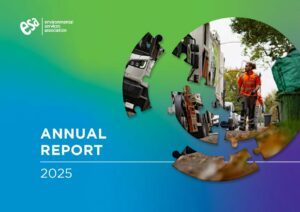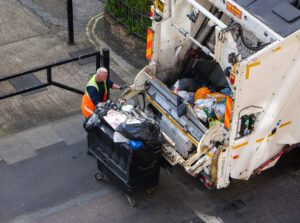The Environmental Services Association (ESA) has published a new Nature Positive Toolkit, which provides a comprehensive resource to help organisations across the recycling and waste management sector understand and mitigate their impacts on nature and, subsequently, on biodiversity.
Nature is being degraded faster than at any other time in human history. Over one million species are currently threatened by extinction and their ecosystems are at risk of collapse. This loss of nature cannot be sustained. The global focus on reducing carbon emissions has a significant role to play in the protection of ecosystems but the need for wider actions, to halt and restore nature loss by 2030, and to ensure we live in harmony with nature by 2050, has come rapidly to the fore in recent years – with governments and all sectors having an important role to play to understand and mitigate their specific impacts and dependencies on nature.
In light of this responsibility, the ESA established a Biodiversity Working Group in 2021 which published a Biodiversity Best Practice Guide for the recycling and waste management sector to coincide with the UN Biodiversity Conference (COP15) in December 2022. This was supported by a short film. Going further,the associations new Nature Positive Toolkit comprises two documents entitled Supporting a Nature Positive Future: a process for ESA Members and Nature Positive Process: Technical Note, as well as an interactive powerpoint-based tool entitled Mapping impacts on nature. Used together, these tools provide a standardised process for recycling and waste management operators to follow to support a Nature Positive future.
The toolkit was commissioned by the ESA and produced jointly by independent expert consultants, Mott Macdonald and WSP. The toolkit sets out a definition of “Nature Positive” for the sector and outlines the business case for organisations to take this approach.
In alignment with international frameworks and methodologies including the Taskforce for Nature-related Financial Disclosures (TNFD) and the Science-based Targets for Nature (SBTN). It also describes how organisations across the sector can establish a baseline for measuring their own impacts on nature using the tool as a starting point. Once a quantified baseline of impacts is established, the toolkit presents a process for organisations to take to support a Nature Positive future as well as useful external reference sources to help ratchet up nature positive actions.
According to the Chair of the ESA’s Biodiversity Working Group, Leigh Broadhurst, by using current global annual consumption rates, it would take 1.7 planet Earth’s to meet humanity’s needs. This significant over extraction of natural resources is unsustainable and is devastating the ecosystems upon which every living organism on earth relies. Conserving precious resources is at the heart of what the recycling and waste management sector does, but the industrys operations have their own impacts on nature. By understanding these impacts, we can not only mitigate the negative aspects, but take positive action to actively contribute towards conservation efforts.
According to the associations adopted definition, organisations across the sector supporting ‘Nature Positive’ will have an overall measurable net positive impact on nature that contributes towards local and national conservation targets. This relates to impacts within the organisation’s control, for example from operations, offices and sites. Additionally, for impacts on nature that are outside of its control, the organisation proactively encourages and promotes a Nature Positive approach to those who can control those impacts.
With this ins mind, the ESA is urging its members, and others across the sector, to adopt a Nature Positive approach to managing and mitigating their impacts, and the toolkit published today will help achieve this.”
All parts of our economy and societies are impacted by the increasingly vital role of nature and biodiversity, and the industry-leading knowledge and experience provided by Mott Macdonald to deliver such a critical resource for the waste and recycling sector and the communities they serve, has been invaluable.
ESA believes that the Nature Positive process that we have set out is a robust and rounded approach that will help businesses working in any part of the waste value chain build nature into their business – minimising risks and maximising opportunities, for the business, for people and for nature.




